Fordham Students Look Toward More Liberal Future
Websites such as Niche and College Confidential, which provide information to prospective freshmen looking to find their new home for the next four years, tend to label Fordham University as “somewhat conservative” or “overwhelmingly moderate.”
However, as classes come and go and new students are welcomed into the fold, the political landscape of Fordham perpetually evolves. With the inauguration of the first female layperson, Tania Tetlow, to the presidency, it seems as though the university is potentially more liberal than it appears at first glance.
Opinions vary amongst current students.
“I would say Fordham tries to keep a middle ground with a slight left-leaning overall. However, their stances on certain issues are on the complete opposite ends of the spectrum,” said Russell Goldmeer, GSB ’24. “Such as abortion rights and LGBTQ+ issues.”
Teagan Angell, FCRH ’24, agreed, stating that the school is “overall more liberal,” but that their “Jesuit identity absolutely harms students on campus that have reproductive systems.” She continued by saying that “the inability to access birth control [and other contraceptives] is extremely inconvenient and backwards.”
According to the University Health Center, “neither contraceptives nor birth control are distributed or prescribed on premises as a standard practice” due to the university’s status as a Jesuit institution. However, they do provide testing for sexually-transmitted infections, as well as women’s wellness exams, both by appointment.
Similarly, Garleni Martinez, GSB ’23, said she feels as though there is a “pressure to be more conservative” because of this Jesuit status. She added that because Fordham has to answer to the Church, as well as its alumni network, there is a sense of not wanting to “upset alumni or valuable donors” at the cost of inclusivity.
When speaking to the Office of Residential Life this past August, Tetlow stated that the inability to distribute contraceptives as resident assistants and directors will likely remain unchanged because of the older, staunchly Catholic alumni and donors, according to resident assistants who attended the event.
It is inevitable that as a Christian institution of higher education, students of religious backgrounds (and sometimes conservative views, which are connected) enroll, creating contrast between them and those who attend Fordham simply because they want to be in New York City.
Some students said they see a difference in political alignment between campuses and colleges. Diana CamposLeyva, FCRH ’26, stated that “Rose Hill is a little more on the conservative side,” an idea which is concurred by Ryan Nole, GSB ’25. He said that “Lincoln Center is way more left-leaning” and even distinguished that “as a Gabelli student, it’s very noticeable that GSB is more right-leaning than FCRH.”
Mario Gabelli, class of ’65, the billionaire philanthropist the business school is named after, has made large political contributions to mostly conservative candidates. He is a registered Republican of Connecticut. There is also a Mario J. Gabelli School of Business at Roger Williams University, a primarily independent-identifying campus in Rhode Island where 55% of students’ families earn $110k or more (Fordham, comparatively, is 53%).
When it comes to Fordham University’s responsibility to denounce acts of terror, hate and inequality, Nole said he believes that the school must take a “stronger stance on political events.” Similarly, Goldmeer acknowledged the startling silence following the Supreme Court’s Roe v. Wade decision. “They have not really taken a proactive stance praising or denouncing the decision,” he said, because the Catholic Church strongly opposes abortion, but announcing that would be ostracizing the school from its young, socially liberal, predominantly female community.
“They are very careful not to step on anyone’s toes and never really give their true opinion on any issues,” said Martinez. As a senior, she said she believes that “they’re always late on the issues they are addressing and don’t care to address them when they really should be.” For example, the university has never released a statement on the Black Lives Matter movement, and only addressed George Floyd’s death after the conclusion of the trial. While they choose to respond to some world events, such as the rise in Asian American hate crimes and the Catholic Church clergy scandal, they also remain silent on others such as the New York City migrant crisis.
Additionally, the university banned the student club Students for Justice in Palestine, which resulted in a four-year legal battle.
“I don’t see education on these [world] events and the [sic] continued fight against them,” said freshman CamposLeyva. The university used to publish an annual report from the Chief Diversity Officer, but it was last released in 2020. Also in 2020, Rev. Joseph M. McShane, S. J., president emeritus stated the university’s plan for “addressing racism,” which would include a multi-year pledge for education and justice. While some progress has been made — such as a dedicated space in the McShane Campus Center for the Office of Multicultural Affairs — many believe that Fordham is behind schedule.
“The continued power held by Dean Rodgers, a white cisgender man in charge of CARE — which pertains mainly to women and minorities who are disproportionately taken advantage of — is still concerning and upsetting,” said Angell.
Dean Rogers was under investigation for an inappropriate presentation on sexual assault while educating resident assistants in 2017. According to Teen Vogue, he “reportedly played a trailer for ‘The Hunting Ground,’ a 2015 documentary that aimed to shed light on the widespread problem of sexual assault on college campuses.” According to statement by then-RA Rowan Hornbeck, FCRH ’18, Rogers allegedly said this was “the agenda of the political left” and showed a video from PragerU that claimed there is no evidence of a national rape epidemic.
However, the student body largely feels hopeful following the hire of Tetlow, the former director of Tulane’s Domestic Violence Clinic. As an associate professor of law at Tulane University, she “[taught] students to provide legal services to victims of domestic abuse, relationship violence, stalking and sexual assault,” according to Fordham News.
“[It shows] that the school values a person’s ability rather than their religion,” said Nole. “It’s really a step in the right direction.” The consensus is widespread: Goldmeer stated that “I firmly believe that having a woman as president was long overdue for Fordham.”
As President Tetlow begins to make changes during her tenure, students remain confident that her experience in advocacy for women and minority groups will positively impact a campus enshrined in Jesuit values and a tradition of cura personalis.
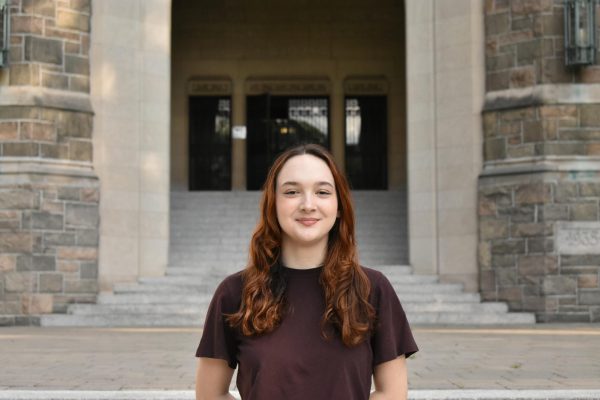
Samantha “Sam” Minear is a senior from Long Branch, N. J., majoring in international studies and communications. She started as a contributing writer...





































































































































































































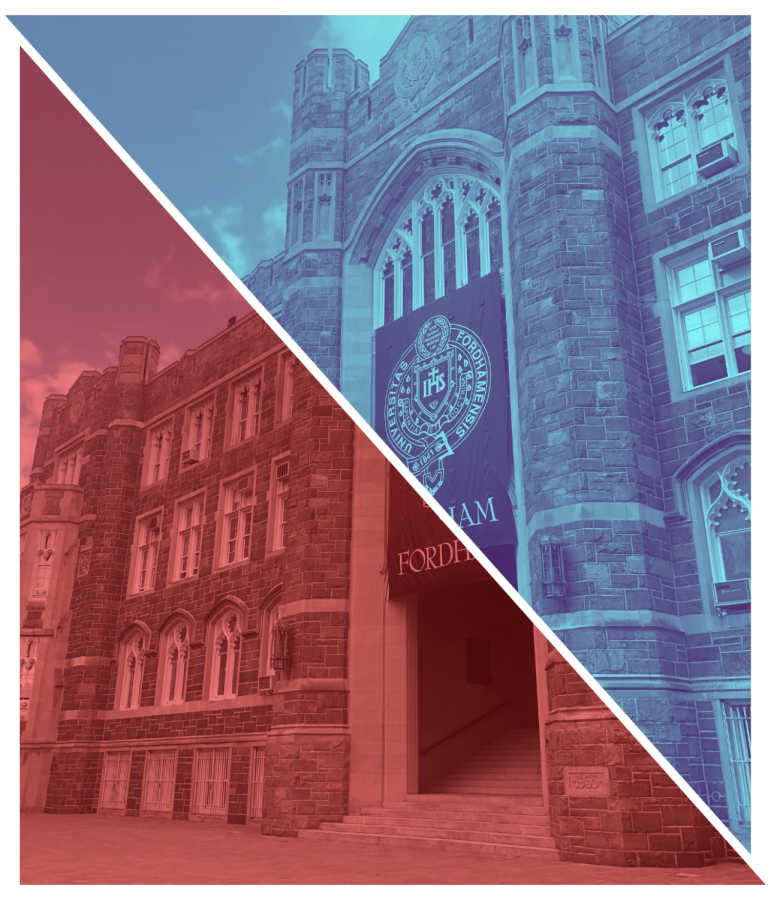





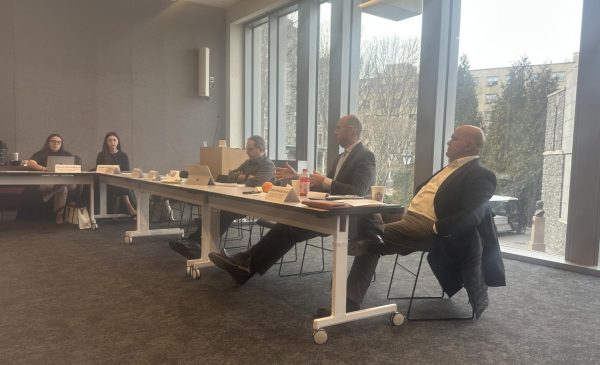
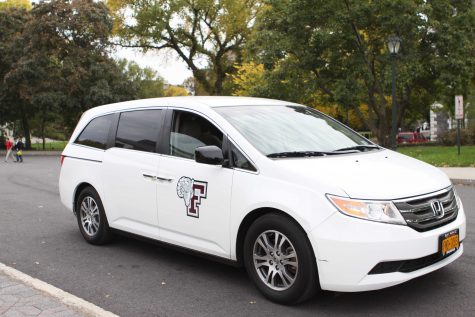
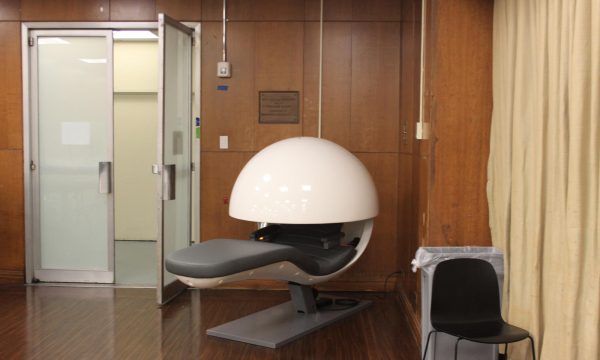
Patricia • Oct 1, 2023 at 7:39 pm
This university has the responsibility to teach conservative values. For example, one of the commandments is “Thou shall not kill.” This means abortion kills babies. This is science/facts.